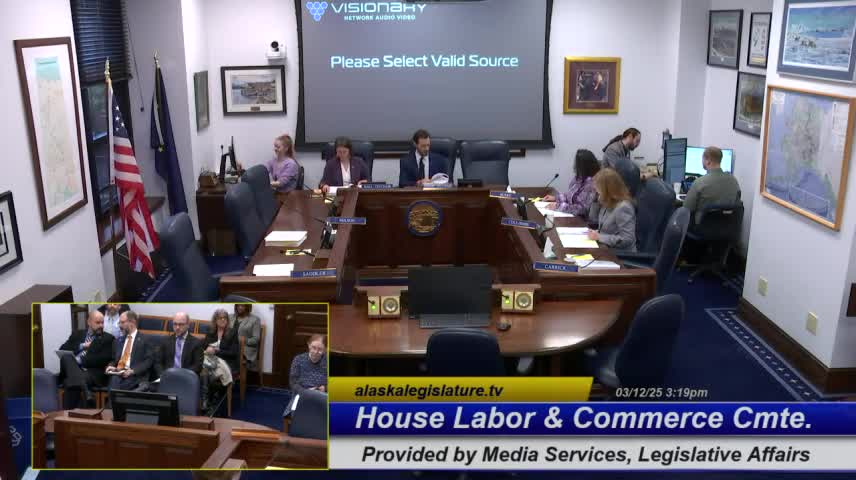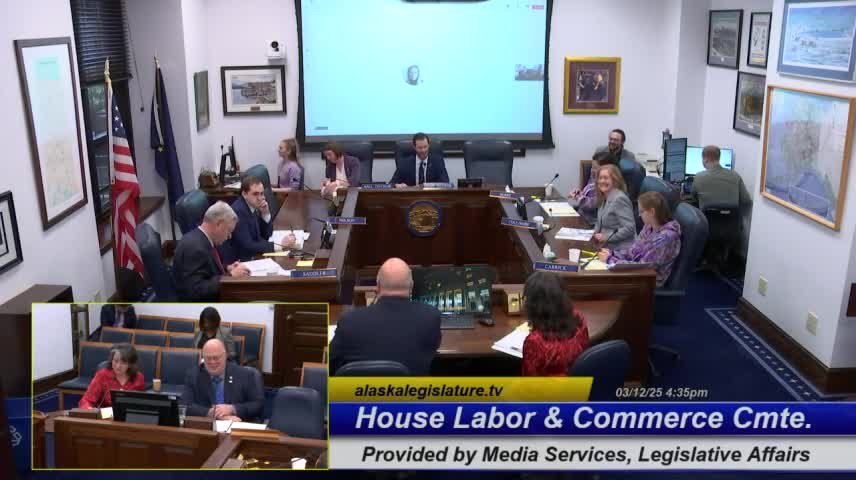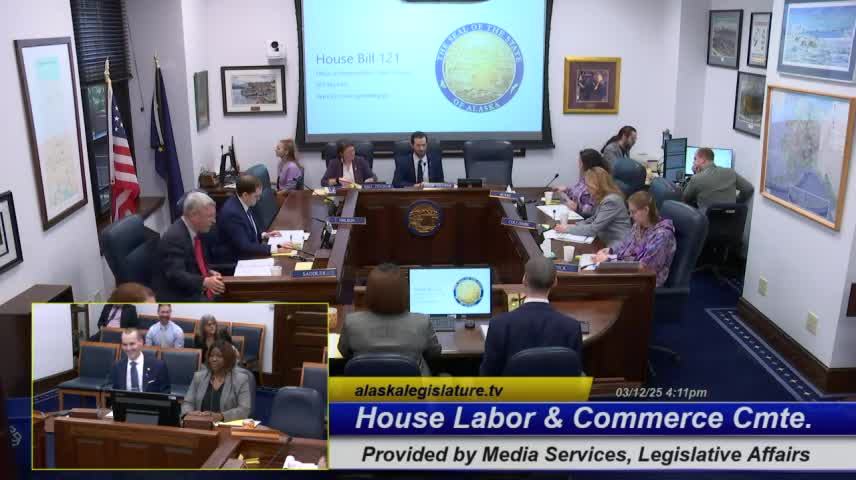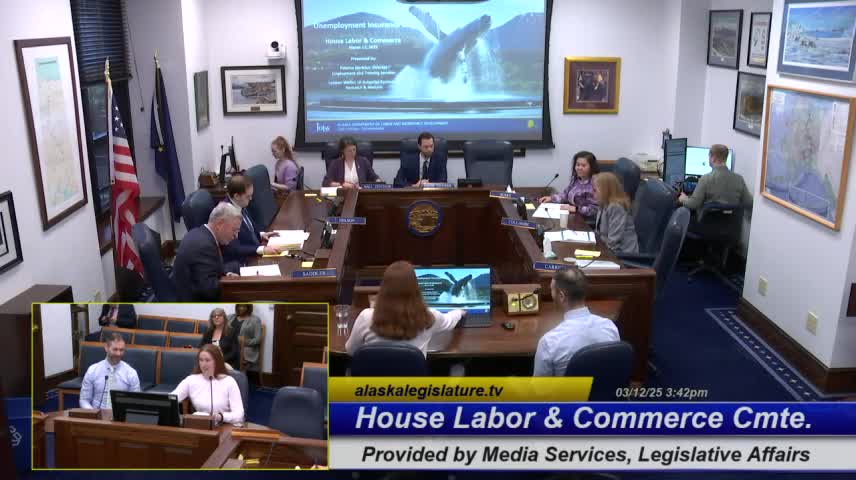Article not found
This article is no longer available. But don't worry—we've gathered other articles that discuss the same topic.

House committee hears bill to clarify PFD absences, add fingerprinting and privacy for applicants

Sponsor seeks to lower and clarify vehicle-rental tax, shift collection responsibility to platforms and protect individual hosts

Committee hears bill to align Alaska CPA licensure and firm mobility with national practice

